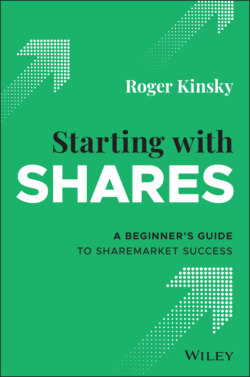Читать книгу Starting With Shares - Roger Kinsky - Страница 20
Shareholders are owners of a business
ОглавлениеWhen you become a shareholder you're investing in a business. In fact, you become a part owner of that business. So what's a business? A business is a commercial enterprise that provides a product or service to consumers and usually aims to make a profit. (A non‐profit‐making business can be set up for charitable purposes but this is rare for Australian companies with listed shares.) You can't be a shareholder in businesses such as partnerships and private (or proprietary) companies unless invited to do so by the directors. The most common type of business in which you can be a shareholder is the public company.
As you might guess, a public company is a type of business where anyone can become a part‐owner. It follows that the company has no control over who the owners are. Larger companies are also known as corporations.
The company has a separate legal identity from the owners and is regarded as a separate entity at law. This is known as a body corporate and means that the company can act very much as a person can in business situations. For example, the company owns assets and has liabilities (debts). It can enter into contracts such as contracts for employment or for the purchase of goods or services. Because of the separate legal identity, the assets of the owners are immune from the assets of the company.
So if you're a shareholder in a company, no matter how much financial difficulty the company may get itself into, your personal assets can't be used to pay creditors or to help bail the company out. In extreme cases, you could lose the money you've invested in their shares but that's the limit of your liability. A public company often uses the abbreviation ‘Ltd’ at the end of the name to indicate the limited liability of the owners.
